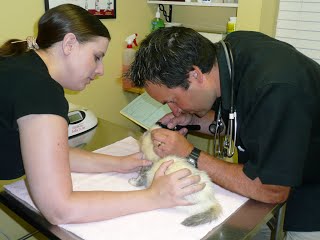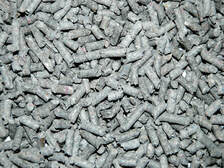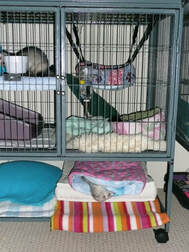This is going to be a major reality check because I am going to be completely frank with you. These are things most pet stores do not tell you when you are checking out their cute ferrets.
Two primary things to keep in mind before getting a ferret - they are HIGH maintenance and veterinary costs are high.
Two primary things to keep in mind before getting a ferret - they are HIGH maintenance and veterinary costs are high.
|
They are prone to a host of illnesses, especially as they age and because most veterinarians do not take ferrets as patients you have to go to a ferret knowledgeable veterinarian and there are not many around. Consequently, veterinary costs are considerably higher than for other companion animals because it takes specialized knowledge and experience to treat ferrets.
|
You should have a minimum of $1000.00 set aside at all times for the inevitable surgery all ferrets will require at least once in their lives and for veterinary medical expenses, which come up regularly.
Ferrets require specialized veterinary care.
If you buy a kit (baby ferret) from a pet store some things to keep in mind:
Unrecognized deafness can lead to fear biting because pet store personnel (and subsequent owners) aren't aware that the ferret is deaf and don't approach it properly. Lack of knowledge on how to handle fear biters may make the problem worse.
Ferrets require specialized veterinary care.
If you buy a kit (baby ferret) from a pet store some things to keep in mind:
- Kits have to be socialized and trained.
Unrecognized deafness can lead to fear biting because pet store personnel (and subsequent owners) aren't aware that the ferret is deaf and don't approach it properly. Lack of knowledge on how to handle fear biters may make the problem worse.
- All kits nip as part of normal ferret play, much as kittens do, they have to be trained not to.
- Do not hit or flick a ferret on the nose if it nips. This creates fear biting and will make the problem worse.
- Ferrets do use litter boxes, however, outside of their cages it is about 50/50 . Males are better about being trained to use puppy pads or litter boxes outside of their cage. But if you get 70% successful toileting where they should go, you are doing remarkably well. In the cage it is generally a 100% hit.
- Pine based cleaning products, e.g., Lysol, can be lethal to ferrets. Even the fumes can kill them or cause permanent damage.
- Pine chips should never be used as bedding because they cause severe respiratory problems. Cedar anything can be deadly.
- Purchase a good quality ferret food. A good quality KITTEN, or all life stages feline food, is a suitable substitute as long as fat/protein levels are good (i.e., 35-50% protein, 20% min.fat) and carbohydrates are low. The More Dooks Ferret Food Chart lists many great options.
- Marshall's, Kaytee and many others are NOT good ferret foods. They are obligate carnivores and cannot digest fruit or vegetables and should never be fed either.
- Raisins can cause renal failure and should be avoided.
- A good quality KITTEN, or all life stages feline food is a suitable substitute as long as fat/protein levels are good (i.e., 35-50% protein, 20% min.fat) and carbohydrates are low.
|
- Ferrets require a minimum of 2-4 hours time out of their cages with their humans, they are not a cage animal like pocket pets. They will get depressed and stressed if not given enough time out of their cages. And when stressed they get ulcers, which need to be treated or they can die.
- Your home must be ferret-proofed to prevent fatal accidents! An excellent overview can be found at: http://www.ferretcentral.org/faq/part2.html#ferretproofing - Basically they need to be kept out of kitchens, bathrooms, and laundry rooms. Reclining furniture causes more ferret deaths than anything else because they will climb up into the furniture and get caught in the workings. They will dig up a couch unless it sits flat on the floor or the bottom is covered over in a heavy canvas. Same thing for box springs.
- Ferrets do not see very well and love to climb and will walk off the end of a coffee table or book case. Because their legs are not designed like that of a cat or dog they can damage internal organs or break bones if they fall .
- They are fearless and will go up to animals that could be dangerous to them; consequently they must be supervised at all times around other animals. Dogs are particularly dangerous to ferrets. Ferrets are notorious for nipping at dogs' paws and an annoyed dog typically retaliates by biting. One bite will kill a ferret. They do better with cats because a cat can jump and get away from them. Keep in mind nipping is part of ferret play and they never learn that nipping other animals is NOT okay. You can train them not to nip humans but not other animals.
- Ferrets are predators and will kill birds or rodents if not supervised. Ideally birds or rodents should be kept in a separate room that is not accessible to a ferret to keep them safe. Your geckos, hamster, birds, mice and rats would be at risk. Your dog would be a risk to the ferret.
- They are usually not a lap animal and do not sit quietly on your lap and be petted. They are go, go, go - high energy into everything and anything.
- Think of all the work a toddler requires and then triple that and you will have some idea of what's involved with having a ferret.
A special note when it comes to ferrets and young children. Ferrets are small and delicate animals who can be seriously injured if dropped, stepped on or squeezed. Ferrets will bite if frightened like any animal. Young children with their energy and exuberance can easily frighten a ferret. Infants should never be left unattended with a ferret. The crying a human baby makes is very distressing to a ferret (as it is to some humans). Ferrets react many different ways to a crying baby, including biting.
My strong recommendation is to wait until your child is at least ten years old before making a ferret a part of your family. Granted there are exceptionally mature children at a younger age, but they are the exception and not the rule.
As you can see they aren't for everyone because of the high cost of care and requirement for constant supervision. On the plus side they are inquisitive, extremely intelligent, love human companionship and bond profoundly with their human families. Two are better than one because they will entertain one another and keep each other company. Just a note of caution, a bonded pair is exactly that and should never be separated or they can die of grief. Because of that most people have more than two, because if one dies the other one at least has a friend or two left to help with the grief. They live on average 6-8 years, although because of all the illnesses they get 5 is probably more realistic.
Caring for a sick ferret is like having a sick infant, because they require round the clock care.
This is the reality of having ferrets, something pet stores will not tell you. If people knew all that was involved few would get ferrets and we wouldn't exist as a ferret rescue because typically after a year, many people surrender them because they are more care than they bargained for.
Ferrets are cute and that makes people want them but you need to be aware of everything involved before getting one. If I sound discouraging, I am. I don't want to see another ferret grieve the loss of his/her family and be re-homed or surrendered because adequate research wasn't done up front BEFORE the ferret was purchased.
I am very glad you are taking the time to read this - that is an intelligent and well thought out decision. If a person still decides they want a ferret after doing all the research and armed with this information, then I am confident they can provide a good home to a ferret.
If you have any other questions or wish clarification on any of the things I've written, please don't hesitate to write or call.
Originally written by Tressie Dutchyn, who was the founding member of FLSAC.
Overview of things to consider before acquiring a ferret - video by Fran Friedman, Morning Star Animal Sanctuary: http://www.youtube.com/watch?v=p6b8DW42pmI



